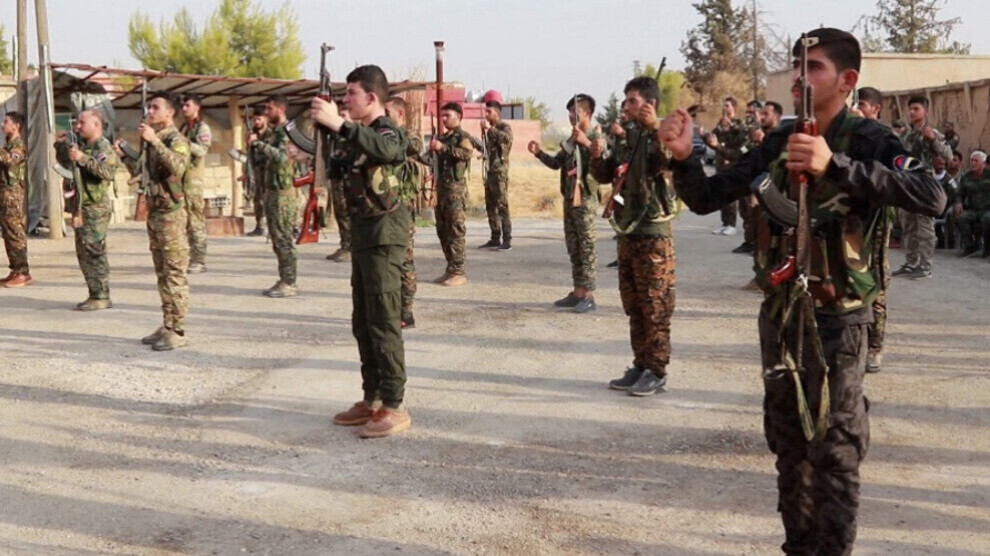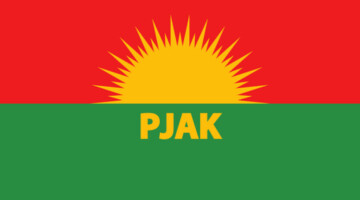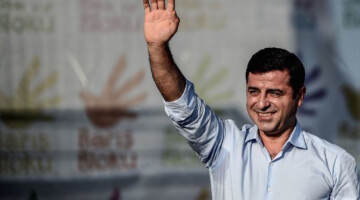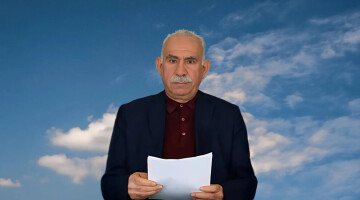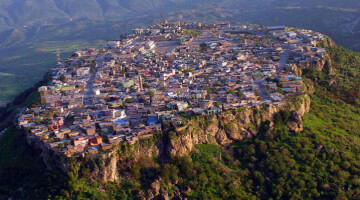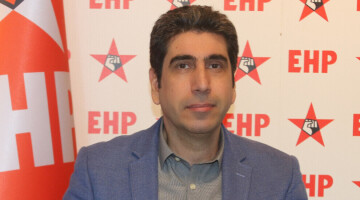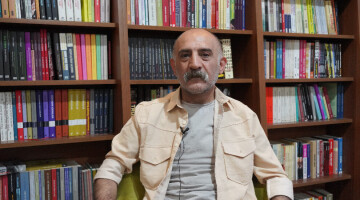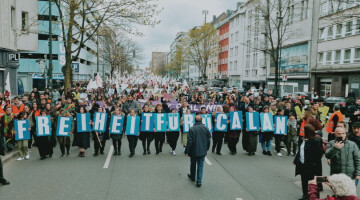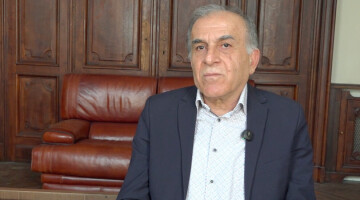On 24 April 2019, the Armenian battalion ‘Şehîd Nubar Ozanyan’ in Hesekê, northern Syria, officially announced its establishment. This day has a special symbolic meaning, because it marks the beginning of the genocide against the Armenians under the responsibility of the Young Turkish government in the Ottoman Empire and has been celebrated since then as a day to commemorate the genocide. The deportation of the Armenian elite on 24 April 1915 from the imperial capital Constantinople to camps near Ankara marked the beginning of massacres and death marches that claimed more than 1.5 million victims.
The Armenian battalion in Rojava is named after the Armenian Nubar Ozanyan (Nom de Guerre: Orhan Bakırcıyan) who has fallen as a martyr in Raqqa on 14 August 2017 as the commander of the Turkish communist organization TKP / ML-TIKKO fighting against the terrorist organization Islamic State. The fighters are descendants of genocide survivors who came from provinces such as Amed (Diyarbakir), Urfa, Muş, Bitlis, Antep and Batman and were deported to the Syrian desert.
Only six months after the battalion was founded, the Turkish invasion of northern Syria began on 9 October 2019, and the Armenian battalion actively participated in the defense against the Turkish army and its Islamist mercenaries. Nubar Melkonian from the battalion's headquarters spoke about further developments and the current situation in this interview with ANF.
The attacks on Northern and Eastern Syria have continued uninterrupted for the past two years. What are the effects of these attacks on the Armenian population in the region?
An important part of the genocide against the Armenian people took place in Syria. In Serêkaniyê alone, the Ottoman Empire killed around 70,000 Armenians, in Deir ez-Zor some 250,000. With the invasion of Serêkaniyê and Girê Spî, the few survivors and their descendants lost their churches, schools and houses and, in particular, their cemeteries, which are of great importance for our memory. Today we live like the thousands of other displaced persons from the region: we have lost everything and are at the very beginning of the rebuilding.
The Armenian battalion was also involved in the resistance against the Turkish invasion. How did the resistance go and how did it continue?
The Armenian battalion was at the front and took the same position as all the other defense forces, because the Armenians are one of the peoples who most need freedom and a free country. Today we are on the border and in our bases to defend northeast Syria. Like all groups within the Syrian Democratic Forces (SDF), we are preparing for possible missions. We want to prevent further free areas from being occupied.
The Turkish army used chemical weapons in Serêkaniyê two years ago. Forbidden weapons were also used against the Armenians in Arzach (Nagorno-Karabakh) and today chemical weapons are used against the guerrillas in South Kurdistan. How do you assess the attitude of the UN, NATO and other international institutions towards these attacks on the peoples of the region?
The fact that the Turkish army wants to wipe out the guerrillas with chemical weapons points to their desperate situation. The United Nations and NATO, like all other allegedly civilized countries that disregard international agreements and international law, are complicit in the crimes carried out by the Republic of Turkey. There is no serious response at all, such as sanctions. The international opinion is deceived with statements about the alleged concern about the developments. The Turkish army is thus indirectly supported. With their continued silence on the genocide of the Kurdish people, NATO and the UN show that they stand next to the Turkish state. A people fighting for freedom should be supported. The Kurdish idea of freedom, aspiration and dreams should be defended. The Kurdish guerrillas and the people will definitely succeed. Those who are right will win.

